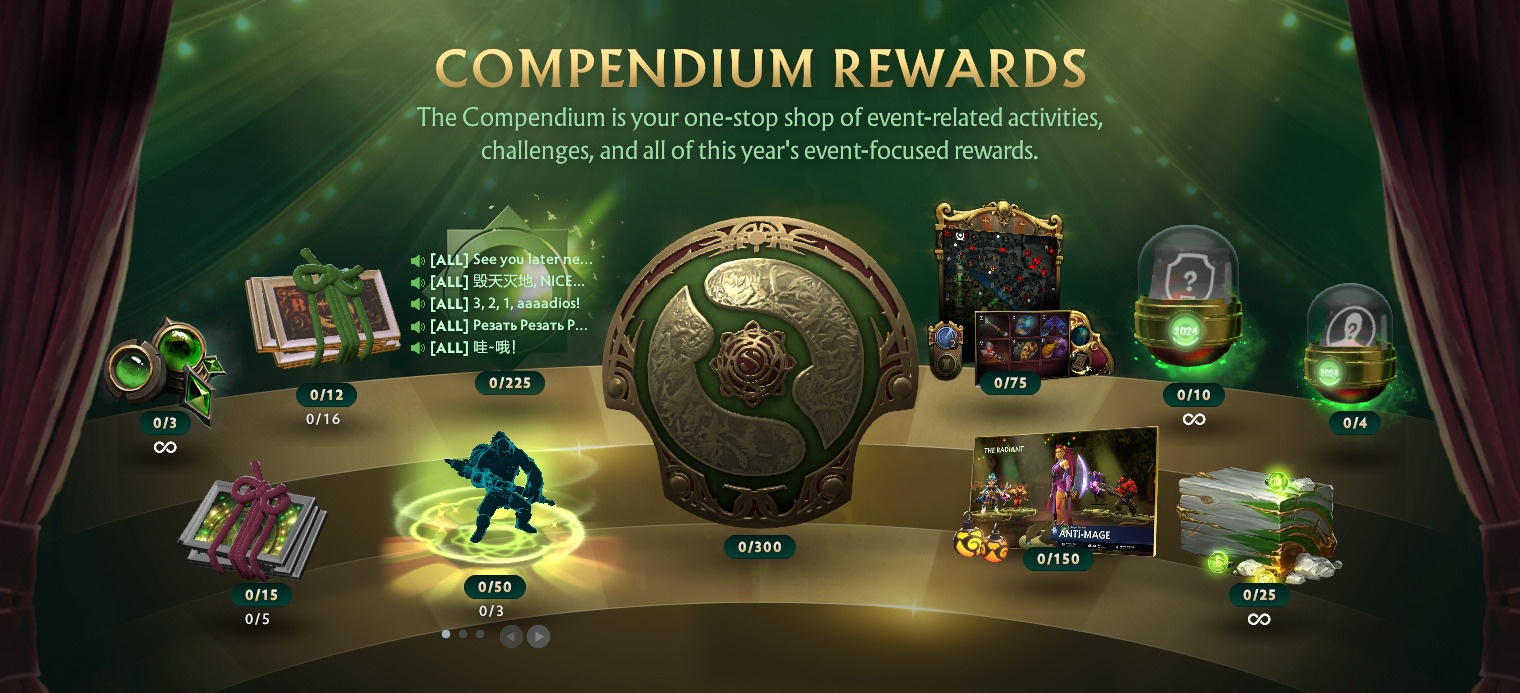In the fiercely competitive and passionately followed world of Dota 2, where every update is scrutinized and every tournament a grand spectacle, a recent release by developer Valve has sparked significant uproar. At the heart of this discontent is Alexander “Nix” Levin, a prominent Russian Dota 2 streamer, whose scathing critique of The International 2025 (TI14) Compendium has ignited a spirited debate and, perhaps, a nascent call for community action.
The Spark of Discontent: A Compendium Under the Microscope
The TI14 Compendium, introduced to the game on August 20th, was anticipated by the community as a fresh injection of content and a celebration of the upcoming pinnacle of Dota 2 esports. However, Nix`s live broadcast on Twitch quickly turned this anticipation into apprehension. His verdict was unequivocal: the Compendium, far from being a creative triumph, felt like a rehash of existing material, offering little new beyond superficial cosmetic alterations.
“This is a Battle Pass? Are you even serious? Do you understand that all these items already exist in Dota? They`ve simply been painted purple. Please, open your eyes; they are treating you with utter disregard. I am genuinely concerned for you. The developers are overtly mocking you, spitting in your face, yet why is there no rebellion?”
Nix`s critique was precise and pointed. He cited the example of a Queen of Pain blade, humorously noting its alleged “50 thousand years” of existence in the game, now merely presented with a new color palette. He asserted that the entire offering felt like a low-effort recycling project, with truly new additions limited to team support bundles, ostensibly created by the esports organizations themselves, not Valve.
Beyond Cosmetics: A Deeper Frustration with Valve`s Direction
The controversy around the Compendium quickly broadened into a more profound discussion about Valve`s perceived neglect of Dota 2`s core development. Nix voiced a sentiment common among long-time players: a persistent lack of substantive game updates and a noticeable absence of the innovative changes that once defined Dota 2`s dynamic evolution.
“Stop suggesting that something has fundamentally changed in Dota. The game hasn`t received a meaningful patch in `50 thousand years.` It feels like everyone has simply given up on it. It seems developers are just running minor balance adjustments through a neural network. You need to open your eyes. I am the most fervent Dota fan. I`ve streamed every single major tournament for six years, always watching, playing—I have over 20,000 hours logged; I love this game immensely. But one must also value themselves and recognize the shift: Icefrog and his team have reportedly moved on to develop Deadlock. Now, it feels like two new individuals, perhaps armed with a three-year ChatGPT subscription, are simply generating instructions like, `Please, create a patch without altering the core formula.` There are no new events, no significant changes. It`s the same game, perpetually unchanged.”
While his speculative remarks regarding AI-driven patches and the alleged departure of core developers like Icefrog are, by nature, unconfirmed, they resonate strongly within a community yearning for the comprehensive, meta-altering updates that once characterized Dota 2`s landscape. Nix, with his formidable 20,000 hours of playtime and years of dedicated tournament analysis, commands a certain authority, lending weight to his impassioned plea. His frustration is rooted in a deep-seated affection for the game, contrasted by a growing sense of abandonment by its creators.
The Call for Rebellion and the Road to TI14
Nix`s heated critique culminates in a direct challenge to the Dota 2 community: demand more. His plea for a “rebellion” is, of course, a metaphorical call for collective disapproval and vocal feedback, intended to compel Valve into delivering content commensurate with the game`s prestigious standing and the community`s substantial investment.
The timing of this outcry is particularly noteworthy. The International 2025 (TI14), Dota 2`s premier annual championship, is set to unfold from September 4th to 14th in Hamburg, Germany. With an initial prize pool of $1.6 million distributed among 16 top-tier teams, TI14 is the competitive pinnacle of the Dota 2 year. The Compendium, traditionally a crucial driver of both additional prize pool funding and fan engagement, now finds itself embroiled in a different kind of conflict—one centered on perceived value and developer accountability.
While the current Compendium`s primary paid offerings are limited to team and caster support bundles (with other features accessible to all players, save for the physical Aegis replica), the core contention, as articulated by Nix, lies not in accessibility but in a perceived lack of genuine innovation. When a key paid offering feels like a mere copy-paste effort, it naturally prompts players to question the value proposition and, more broadly, Valve`s long-term vision for Dota 2`s future.
What`s Next for Dota 2?
Nix`s viral critique underscores a widening chasm between a profoundly passionate player base and a developer increasingly perceived as detached. As TI14 rapidly approaches, the focus extends beyond the world`s elite teams to Valve`s response to this vocal community feedback. Will this digital “rebellion” gather enough momentum to prompt a recalibration in development strategy? Or will players, long accustomed to the game`s established rhythms, ultimately acquiesce to the present status quo? Only time, and perhaps a truly innovative future update, will provide the definitive answers.

